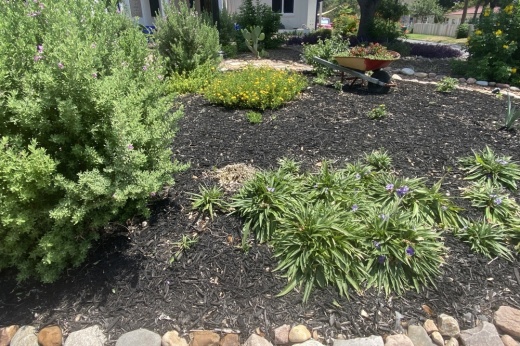The overview
During the June 11 Georgetown City Council workshop, Planning Director Sofia Nelson presented her department’s work on revising the city’s UDC—a regulatory document that guides development within the city—with a focus on updating the purpose statement. The purpose statement allows readers to understand the intent behind the document and is the starting point for drafting codes, Nelson said. The city needs to revisit whether it wants the purpose statement from 2014 to shape future development.
Landscaping regulations can be found in both chapters 8 and 13 of the Georgetown UDC. Chapter 8 of the UDC only applies to properties within city limits, Nelson said, while Chapter 13 applies to all city water service customers regardless of location.
These chapters detail specific requirements for new developments and do not affect existing properties, Nelson said.
Landscaping requirements within the UDC include selecting plants from the city's list of preferred plants; having 50% of installed planed being low-water users; and restricting permanent lawns to drought resistant species, such as Bermuda, Zoysia and Buffalo grass.
During her presentation, Nelson provided recommendations for council to consider during the UDC revision process.
These recommendations include:
- Updating the preferred plants list to remove high-water users entirely
- Incorporating hydrozone requirements, or the practice of grouping plants with similar water, sun and soil requirements together
- Examining the practical effects of limiting planting between June-September
- Re-evaluating whether or not St. Augustine should be permitted
- Establishing a maximum turf amount for non-residential developments
District 7 council member Ben Stewart suggested maintaining a preferred plant list as opposed to restricting certain options. The limitations the city is enacting are through water rates, Stewart said; rising costs will influence future landscaping.
Several council members asked for clarification on seniority between the UDC and homeowners association requirements. Residents are regularly told by their HOAs to water their yard during the summer when water usage is limited, Stewart said.
Georgetown City Manager David Morgan suggested a local legislative solution that would clarify which rules a resident must adhere to.
“Right now, homeowners have to comply with both the HOA and UDC, which creates challenges. It is something that the legislative task force is actively discussing and we hope to bring forward some ideas for [City Council] to consider.”
Council members also suggested staff take a deeper look into the plants list because Georgetown sits between two different ecological regions.
“Here in Georgetown, we are very unique in that we have Edwards Plateau and Blacklands Prairie,” said Kevin Pitts, District 5 council member and mayor pro tem. “There are certain plants that will do well in the eastside and not the westside.”
Additionally, council members unanimously agreed that further research into the use of artificial turf is needed.
Mayor Josh Schroeder suggested council consider removing all landscaping regulations.
“[Georgetown] coded ourselves into this problem. Where [the city] is at is because we’ve tried to code landscaping over the last 30-40 years, and [the city] needs to do away with landscaping requirements and let the market take care of it,” Schroeder said.





